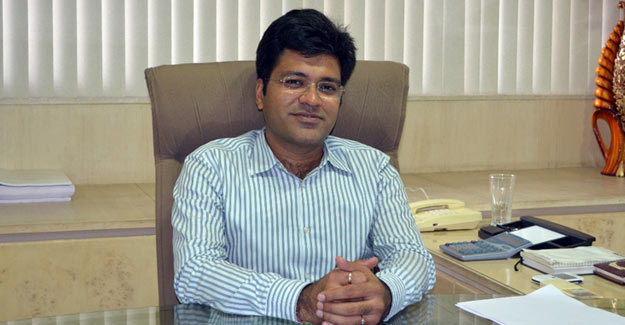
Nandan Denim Expects Government To Deliver On Special Package For Textiles During Upcoming Budget
Deepak Chiripal, CEO Nandan Denim Limited, voiced his opinion about the expectations of the textile industry from the forthcoming Union budget. “Textile industry is one of the largest employers in India and contributes about 14% to industrial production, 4% to the GDP and gives direct employment to around a 45-million strong work force. The industry has gone through lot of difficulties post demonetization and needs special attention in the budget,” he emphasized.
“Introduction of GST, reduction of interest rates in parity with the international money market, tax rationalization measures, and incentives for investments in innovation and infrastructure are few of the many demands from the textile industry for the upcoming budget. It should also address concerns related to skilled workforce, labor law reforms, attracting investments in the textile sector and providing a future road map for the textiles and clothing industry. Incentives should also be considered for training workforce,” he elaborated.
He made two points strongly when talking on the subject:
1. Corporate income tax needs to be lowered to 28% in the upcoming budget and it should be lowered further to 25% in coming years as promised by FM.
2. The Rs 6,000 crore package announced by the FM in 2016 for textiles and apparel sector was a step in the right direction but the industry needs lot of reforms for the revival of the growth.
He further said, “A major challenge for textile industry is that it is highly capital and labor intensive sector and payback period is quite long which is many a times a big constraint for new investment in the sector. Further the government has set a target to create another 30 million more jobs in the industry over the next three years which is possible only if special incentive schemes for new investment in textile sector are announced.”
Lauding the Modi government’s efforts, he said, “Thanks to TUFS, India has made strong strides in the fabric manufacturing sector but garmenting has still not been taken up, primarily due to labor laws and it needs special attention for the success of Make in India, an initiative launched by Government of India under leadership of Prime Minister Narendra Modi. Government should consider extending TUFS for another five years or so to enable companies to avail maximum benefit.”
Sounding the expectations on the export front, he said, “Exports are another challenge and industry is well below its targets. We want finance minister to introduce measures which can boost our exports as India has the potential to become one of the biggest exporters in the world. Cotton-based textile goods accounted for almost 90 percent of India's total textile exports of about $40 billion in 2015-16 and if supported well can take the industry to new heights.”
Touching on trade relations, he said, “The neighboring countries are having duty advantage for exports to the US and EU market on selective basis. Coupled with the recent announcements of the newly elected US president, there are fairly good chances for protection of select countries for exports to the US which happens to be the second largest importer of Indian textiles. And therefore, the government of India should accelerate arrangement with EU market economies to provide concessional imports into these territories to maintain competitiveness of the Indian exports. The political disadvantage to India needs be compensated in terms of money through additional benefits for the Industry to survive and grow as the largest employment generator for the national economy.”
Chiripal concluded his remarks, stating, “Industry also needs to upgrade its technology to meet world standards. The industry, especially the micro, small and medium enterprise sector, does not have access to capital to upgrade technology on its own. A fund should be set up for Technology Up-gradation & Innovation and support may be extended to the companies at lower rate of interest. This will help industry in improving quality of output and become more competitive.”
Textile Excellence
If you wish to Subscribe to Textile Excellence Print Edition, kindly fill in the below form and we shall get back to you with details.












